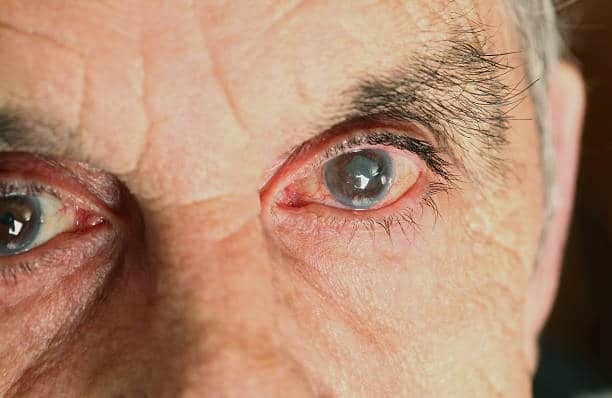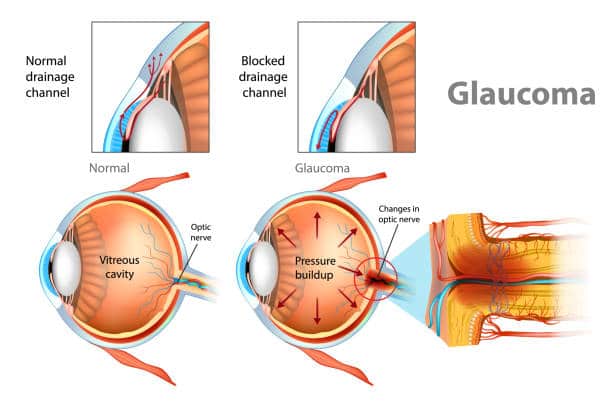Glaucoma has become one of the leading causes of blindness in the United States and the world. More than three million Americans are living with glaucoma, 2.7 million of whom – aged 40 or older – are affected by its most common form, open-angle glaucoma.
A glaucoma is a group of diseases that damage the eye’s optic nerve and can result in vision loss and even blindness. If you are wondering whether you might be at risk, or are worried about the potentially devastating symptoms of this disease, you should schedule a glaucoma evaluation with one of our specialists.
Glaucoma is an ocular disease that damages your eye’s optic nerve. It causes fluid to build up in the front part of the eye. The extra fluid increases the pressure in your eye, damaging the normal function of the optic nerve. Glaucoma is a leading cause of blindness for people over 60 years old.
Blindness from glaucoma can often be prevented with early treatment. Because vision loss due to glaucoma cannot be recovered, it is important to have regular eye exams that include measurements of your eye pressure so a diagnosis can be detected in its early stages and treated appropriately.

There are two major types of glaucoma:
This is the most common type of glaucoma. It happens gradually as the eye fails to properly drain fluid as well as it should (similar to a clogged drain). This can result in the buildup of eye pressure, causing damage to the optic nerve. This type of glaucoma does not result in any pain symptoms and will not cause vision changes at first.
This type of glaucoma happens when the iris (the colored part of your eye) is very close to the drainage angle in your eye. The iris can end up blocking the drainage angle. Another way to look at it is that this type of glaucoma is like a piece of paper sliding over a sink drain. When the drainage angle gets completely blocked, your eye pressure will quickly rise. This results in an acute attack. This is a true emergency and you should call your ophthalmologist right away as this can cause permanent vision loss.
Many forms of glaucoma have no warning signs. The effect is so gradual that you may not notice a change in vision until the condition is at an advanced stage. If glaucoma is recognized early, vision loss can be slowed or prevented. If you are diagnosed with this condition, you will generally need treatment for the rest of your life.
The signs and symptoms of glaucoma can differ depending on the type and stage of your condition. For example:

If your glaucoma is left untreated, you will eventually suffer blindness. Even with treatment, about 15 percent of people with glaucoma become blind in at least one eye within 20 years.
If you are looking for a highly qualified, experienced glaucoma specialist in Newport Beach, then contact Zaker Optometry Newport Beach. Our doctors are board-certified ophthalmologists with an extensive background in treating glaucoma, addressing other ocular diseases, and providing exceptional operative care. For more information, call Zaker Optometry Newport Beach at 949-877-7738.